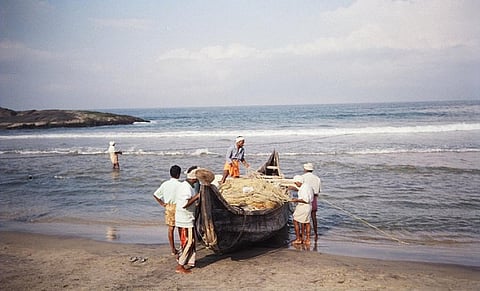

THE Supreme Court has ordered the removal of all structures and establishments built on the notified Coastal Regulatory Zone (CRZ) in the Maradu municipality of Kerala's Ernakulam District.
The order comes just before the onset of the monsoons in Kerala in June, even as the state is still recovering from the 2018 devastating floods that saw close to 500 dead and a million people displaced. Maradu was one among several areas in Ernakulam that was severely affected by the 2018 floods. Over 400 houses were submerged and many areas were waterlogged, allegedly because of widespread encroachment.
While holding that the permission granted by the panchayat relating to construction in the CRZ without consulting the Coastal Zone Management authorities, would be "illegal and void", a two-judge bench of Justices Arun Mishra and Navin Sinha observed construction activities in the notified CRZ areas could be permitted only "in consultation with and prior concurrence of the appellant authority".
The court chose to use the CRZ notification of 1991 instead of the more recent 2018 notification to support its order. The 1991 notification refers to an area of 200 meters from the High Tide Line (HTL) as the no-development zone. The 2018 notification lifts restrictions on construction along the coastal zone ostensibly for the benefit of the tourism sector.
The Kerala Coastal Zone Management Authority approached the apex court aggrieved by the judgment of Kerala High Court dated November 11, 2016, where the court while allowing the writ petitions of some builders, held that the latter could not be penalised for the failure of the local bodies in complying with statutory provisions.
While overruling the Kerala High Court judgement, the apex court pointed out the importance of the Coastal Zone Management Plan (CZMP), which it said had been prepared to check construction activities of all types in the notified areas. "The High Court has ignored the significance of the approved CZMP," the Supreme Court observed.
Taking on record the report of a three-member committee constituted by apex court, it found that the area in dispute in the current petition where construction was being carried out was a notified CRZ-III area, a 'no development zone' under the CRZ regulating law.
"Uncontrolled construction activities in these areas would have devastating effects on the natural water flow that may ultimately result in severe natural calamities," the court observed.
The CRZ is the buffer zone between marine and territorial zones which includes sensitive ecosystems like – shore, wetland, mangrove, mudflat seagrass, salt marshes and seaweed ecosystems.
The 2018 CRZ notification divides the coastal zones into four groups and further divides "CRZ III" into two parts, namely:
The rules regulating the coastal zones have been amended 24 times since the 1970s, and the high tide zone has been reduced from 500 meters to 50 meters.
Though with this order, the court has brought some relief to the coastal ecosystem of the Maradu municipality of Kerala's Ernakulam District, more than 75,000 kms of Indian coastline are still wide open for industrialisation and exploitation because of the CRZ 2018 notification.